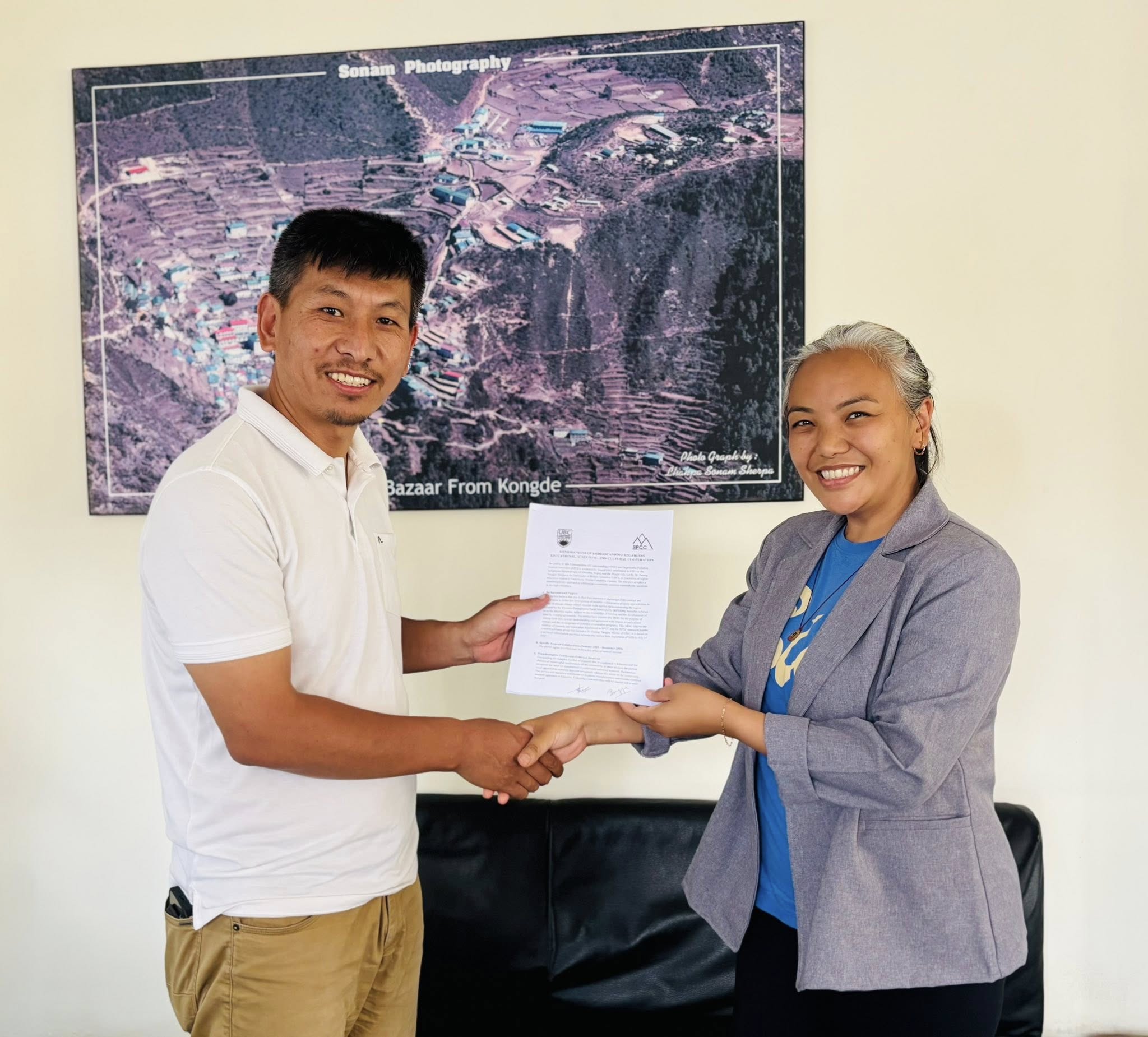
The Sagarmatha Pollution Control Committee (SPCC) and the University of British Columbia (UBC) have established the Jomolangma Research and Knowledge Hub in Thamo, Solukhumbu, under a new MOU to strengthen educational, scientific, and cultural cooperation in the Khumbu region. The hub focuses on integrating indigenous knowledge with scientific research to address climate change, disaster risks, and cultural preservation.
Key initiatives include hazard-mapping research led by Dr. Pasang Yangjee Sherpa, Assistant Professor at UBC, and Pasang Ngima Sherpa, Program Coordinator at SPCC, in response to local concerns, as well as a place-name project to document and revitalize indigenous names of places and trails. Through community-centered research, ethical data practices, and capacity-building, the collaboration aims to enhance disaster preparedness, safeguard cultural heritage, and promote sustainable development.
By combining indigenous knowledge with academic expertise, it seeks to produce ethical, practical, and culturally grounded research that strengthens disaster resilience while revitalizing Sherpa cultural heritage and supporting long-term sustainability in the Khumbu region.
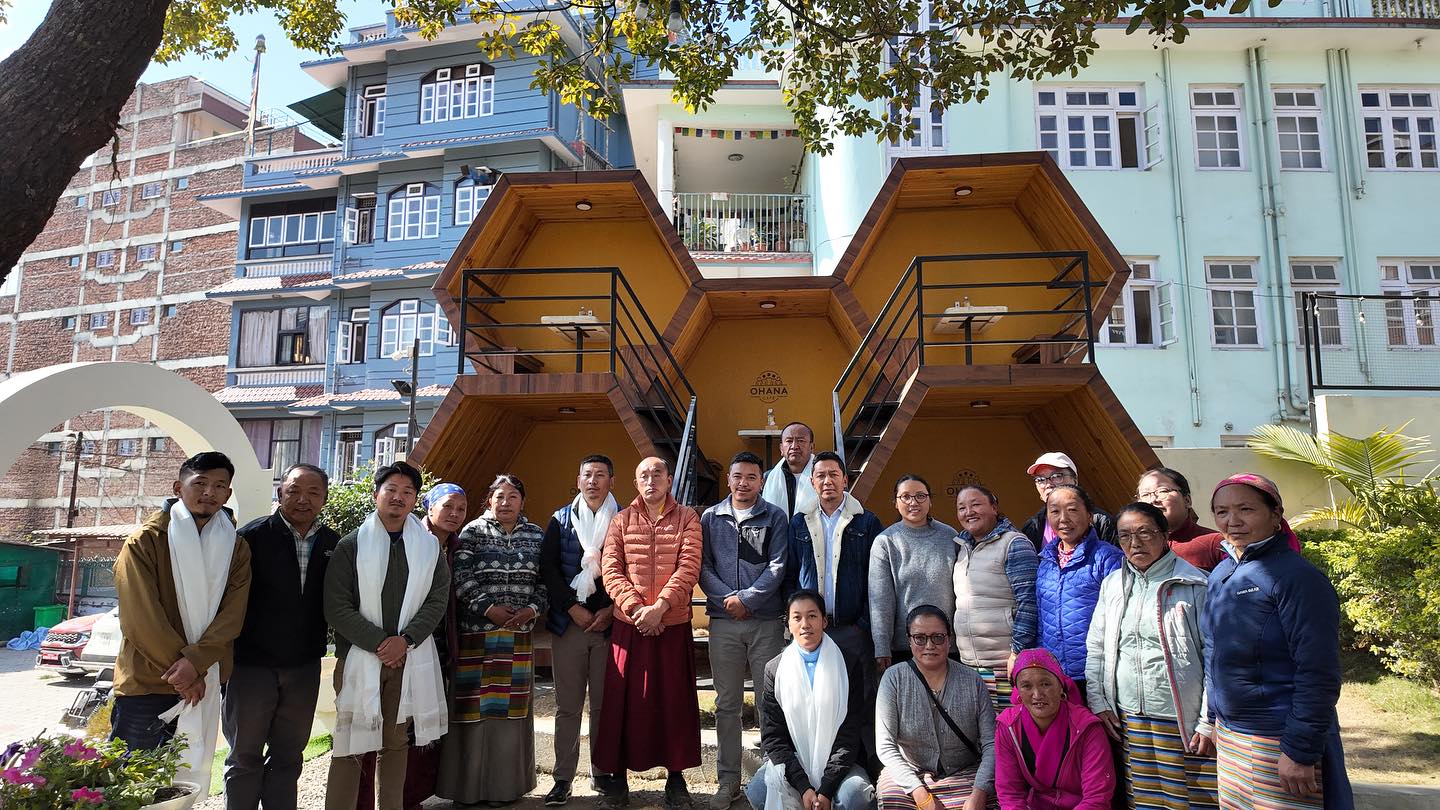

The Sagarmatha Pollution Control Committee (SPCC) and the University of British Columbia (UBC) have established the Jomolangma Research and Knowledge Hub in Thamo, Solukhumbu, under a new MOU to strengthen educational, scientific, and cultural cooperation in the Khumbu region. The hub focuses on integrating indigenous knowledge with scientific research to address climate change, disaster risks, and cultural preservation.
Key initiatives include hazard-mapping research led by Dr. Pasang Yangjee Sherpa, Assistant Professor at UBC, and Pasang Ngima Sherpa, Program Coordinator at SPCC, in response to local concerns, as well as a place-name project to document and revitalize indigenous names of places and trails. Through community-centered research, ethical data practices, and capacity-building, the collaboration aims to enhance disaster preparedness, safeguard cultural heritage, and promote sustainable development.
By combining indigenous knowledge with academic expertise, it seeks to produce ethical, practical, and culturally grounded research that strengthens disaster resilience while revitalizing Sherpa cultural heritage and supporting long-term sustainability in the Khumbu region.
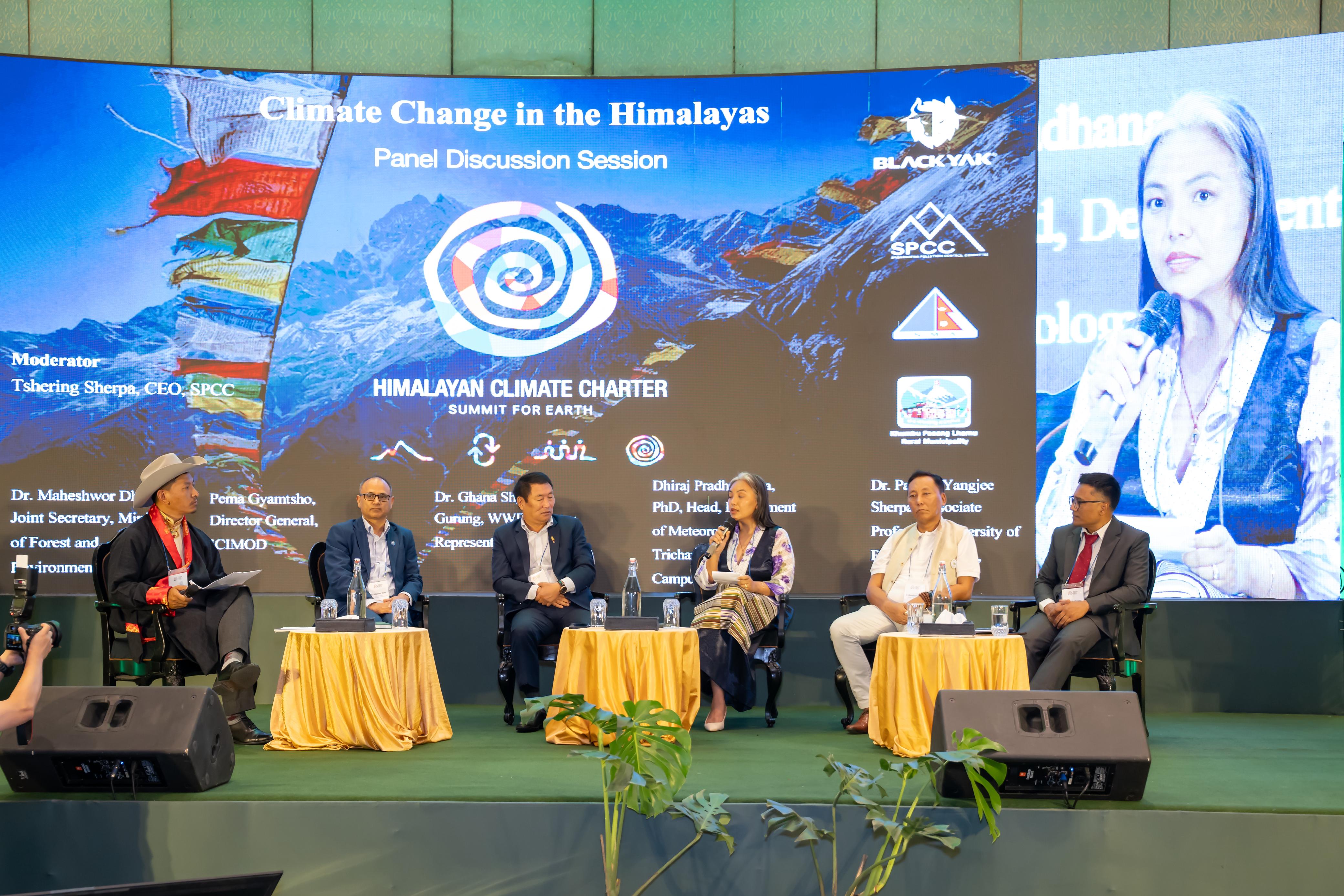
The Himalayan Climate Charter 2025 Summit for Earth, held on 5 July 2025 in Kathmandu, brought together 263 representatives from governments, scientists, IPLCs, NGOs, mountaineers, and international agencies to address urgent Himalayan environmental challenges. Co-hosted by SPCC, KPLRM, NMA, and supported by Black Yak, the summit launched the Himalayan Climate Charter 2025 as a global call to action.
Discussions highlighted cleanup efforts in Khumbu, GLOF recovery, drone-assisted waste collection, early warning systems, and high-altitude nurseries. Key priorities included implementing the Khumbu LAPA, strengthening cross-border climate diplomacy, recognizing traditional practices, and linking adaptation with food security and sustainable tourism. Major outcomes were the official signing of the Charter, stronger partnerships, integration of Indigenous knowledge with science, and commitments to responsible tourism and waste-free practices. The summit marked a historic milestone, emphasizing the Himalayas as a global climate barometer and calling for sustained, inclusive action.
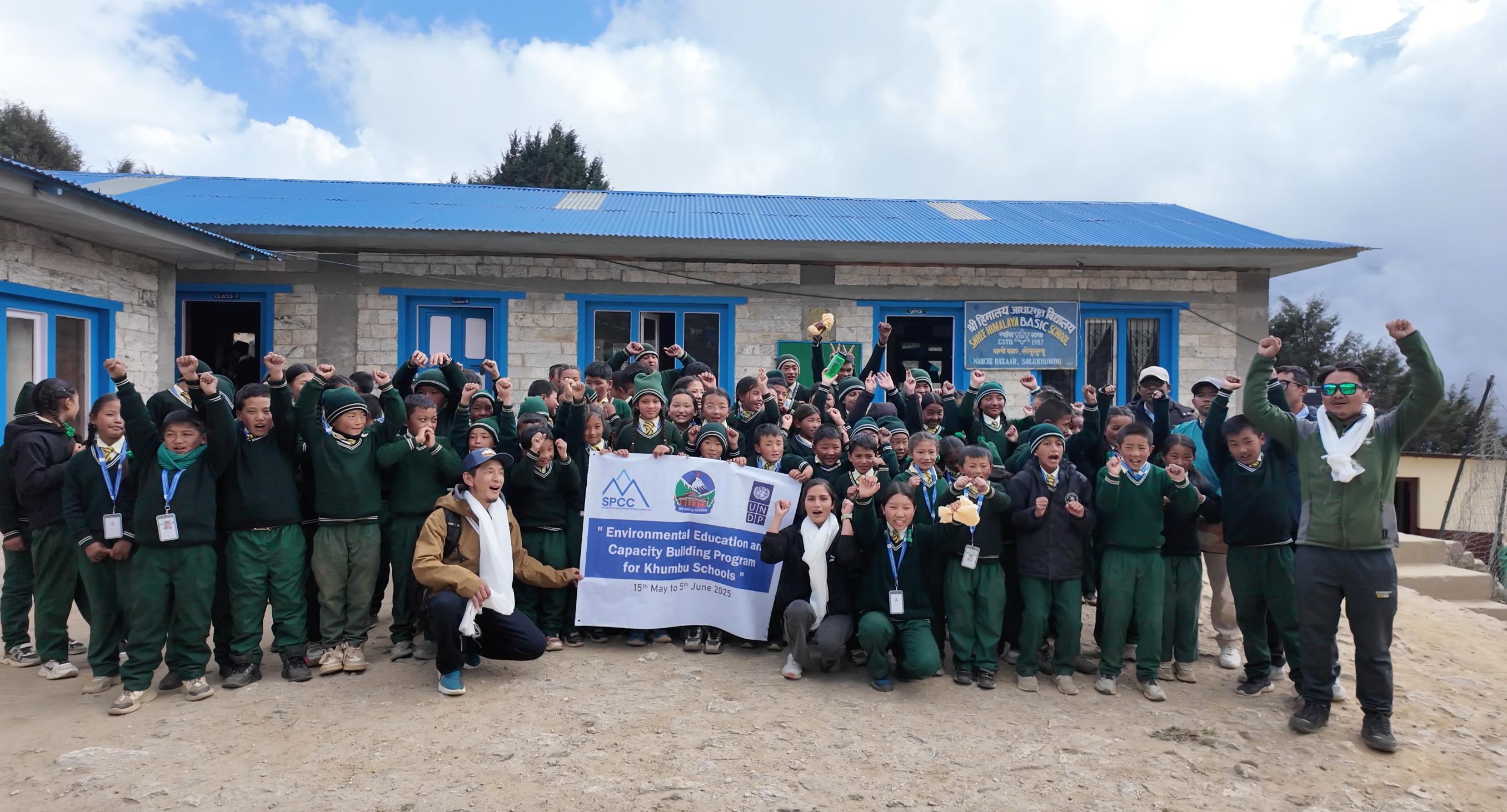
The project titled “Community-Based Climate Risk Management Actions for Building Climate Resilience of Vulnerable Mountain Communities”, under the project name “Sustainable Waste Management and Climate Resilience in Khumbu Pasang Lhamu Rural Municipality (KPLRM)” is a six-month project funded by UNDP Nepal and co-financed by Khumbu Pasang Lhamu Rural Municipality. Through strong collaboration between SPCC, KPLRM, UNDP Nepal, and participating schools, the initiative has established a solid foundation for long-term environmental education, climate-resilient agriculture, and sustainable waste management in the Khumbu region.
Through the leadership of SPCC, the project successfully delivered impactful actions:
Formation and mobilization of Eco-Clubs in schools:
In line with the Eco Club Formation, Organization, and Management Guidelines 2081, SPCC, in close coordination with KPLRM, successfully established and mobilized eight Eco Clubs across schools in the Khumbu region. Formed through consultations with students, teachers, and local government, the clubs are designed to nurture environmental awareness, leadership, and personal development among students.
Establishment of climate-resilient school gardens:
SPCC, in collaboration with Khumbu Pasang Lhamu Rural Municipality (KPLRM), established climate-resilient school gardens at Shree Mahendra Jyoti Secondary School in Chaurikharka and Shree Kharikhola Secondary School in Kharikhola under the government’s “One School, One Garden” initiative. With technical support from local trainers Mrs. Pasang Lhamu Sherpa and Mr. Balakaji Magar, 80 participants (76 students and 4 teachers) received hands-on training on greenhouse farming, composting, and cultivation of seasonal crops suitable for high-altitude regions. The gardens will not only improve nutrition through fresh vegetables but also enhance students’ practical learning in sustainable agriculture and environmental stewardship.
Construction of an Environmental Station (ES):
SPCC established an Environmental Station (ES) at Shree Mahendra Jyoti Higher Secondary School to promote sustainable waste management practices. Designed with five separate compartments for plastics, paper, metals, glass, and other waste, the ES is equipped with a protective roof and fencing to ensure safety and durability. The initiative addressed the school’s previous waste management challenges and introduced an organized system for proper disposal. Officially handed over on June 9, 2025, along with training for students and teachers, the ES now supports systematic classroom waste segregation, managed by a dedicated staff member and monitored by the Eco Club. Directly benefiting 343 students and teachers, the model fosters eco-friendly behavior and will be further integrated with the upcoming Material Recovery Facility in Lukla for improved recycling systems.
Hands-on paper briquette training programs:
SPCC introduced a Paper Briquette Training Program at Shree Mahendra Jyoti Higher Secondary School and Shree Lukla Basic School to promote sustainable waste management and provide an eco-friendly energy alternative.SPCC’s social mobilizer Mr. Mingma Nuru Sherpa led the program that equipped students and teachers with skills to recycle paper waste into briquettes. In May 2025, 32 students participated in hands-on training, producing over 100 briquettes. The program not only enhances environmental education but also provides a scalable waste-to-energy model for schools in the Everest region.
Capacity-building sessions and environmental awareness campaigns:
From 18 May to 5 June 2025, SPCC conducted an Environmental Education and Capacity Building Awareness Campaign across eight schools in the Khumbu region, engaging 880 students (422 female, 458 male) through presentations, interactive sessions, and participatory activities on climate change, waste management, and sustainability. Led by Program Coordinator Pasang Ngima Sherpa and Social Mobilizer Mingma Nuru Sherpa, the campaign enhanced students’ understanding of local environmental challenges, strengthened school–community stewardship, and promoted sustainable waste management practices at school and home.
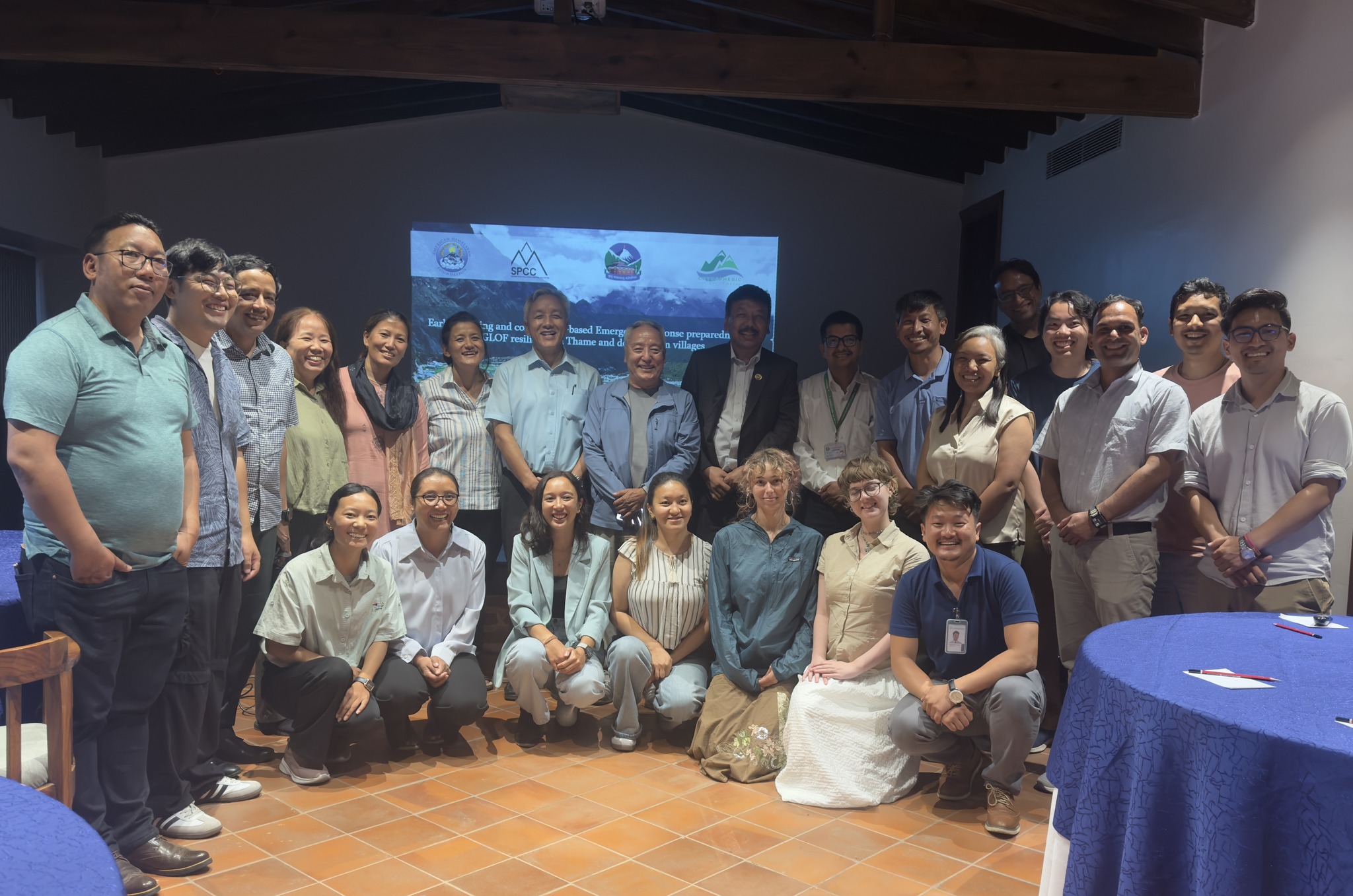
The Sagarmatha Pollution Control Committee (SPCC), with support from the American Himalayan Foundation (AHF) and in partnership with Khumbu Pasang Lhamu Rural Municipality (KPLRM) and the Cryospheric Society of Nepal (CSN), launched the project “Early Warning and Community-Based Emergency Response Preparedness for GLOF Resilience in Thame and Downstream Villages” on 30 July 2025 in Kathmandu.
The initiative, developed in response to the devastating 2024 Ngole GLOF, focuses on installing early warning systems, forming community response teams, and enhancing disaster preparedness through inclusive planning.The project will deploy automatic weather stations, siren systems, hydrological sensors, and SMS-based mass alert mechanisms to improve early warning capacity.
Experts from ICIMOD, DHM, MoFE, and local stakeholders highlighted the need for gender and social inclusion, integration of Indigenous knowledge, and sustainable system maintenance. Local leaders and community members reaffirmed strong support, recognizing SPCC’s leadership in climate action. The project sets a model for locally led, science-based, and socially inclusive resilience building in Nepal’s fragile mountain regions.

